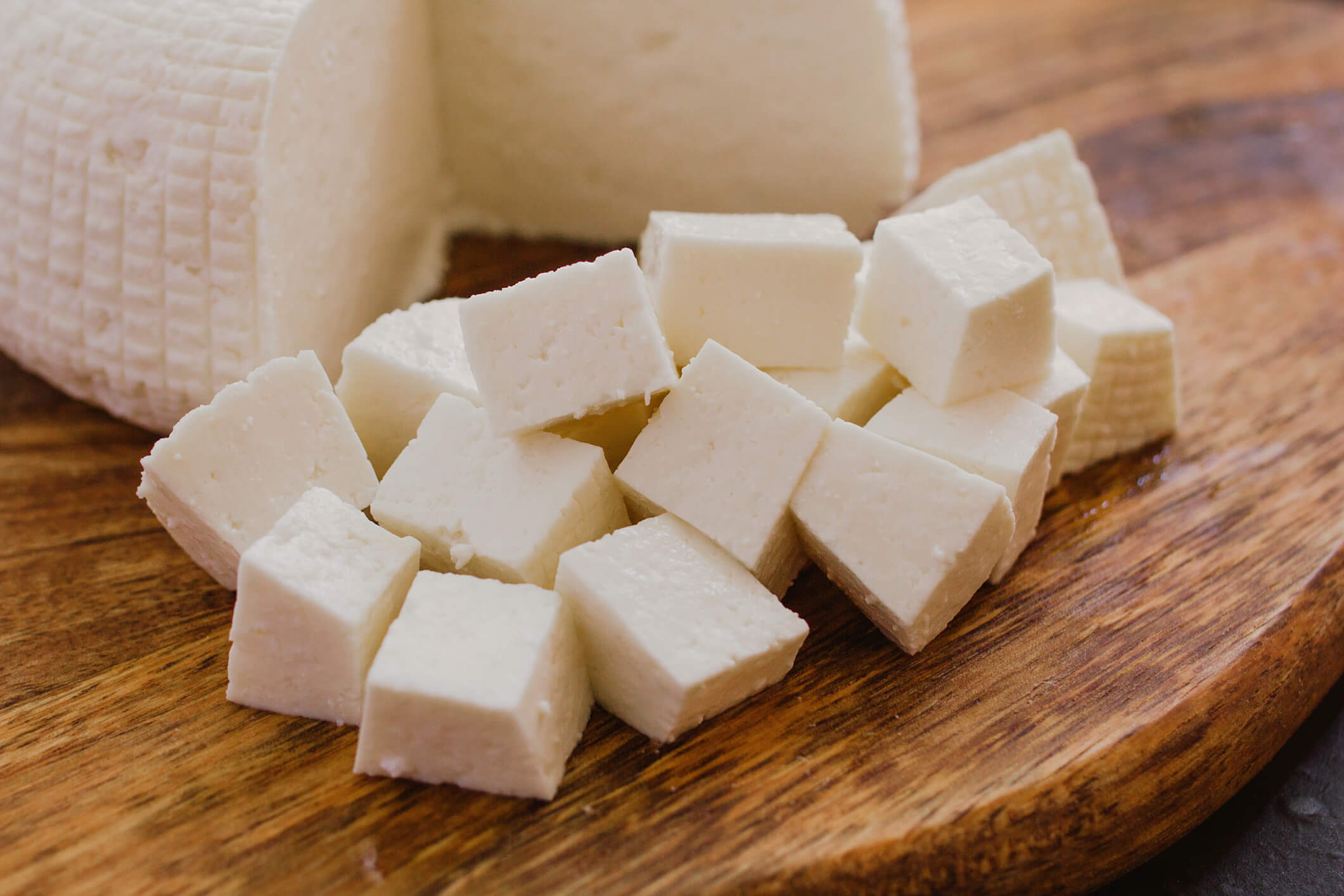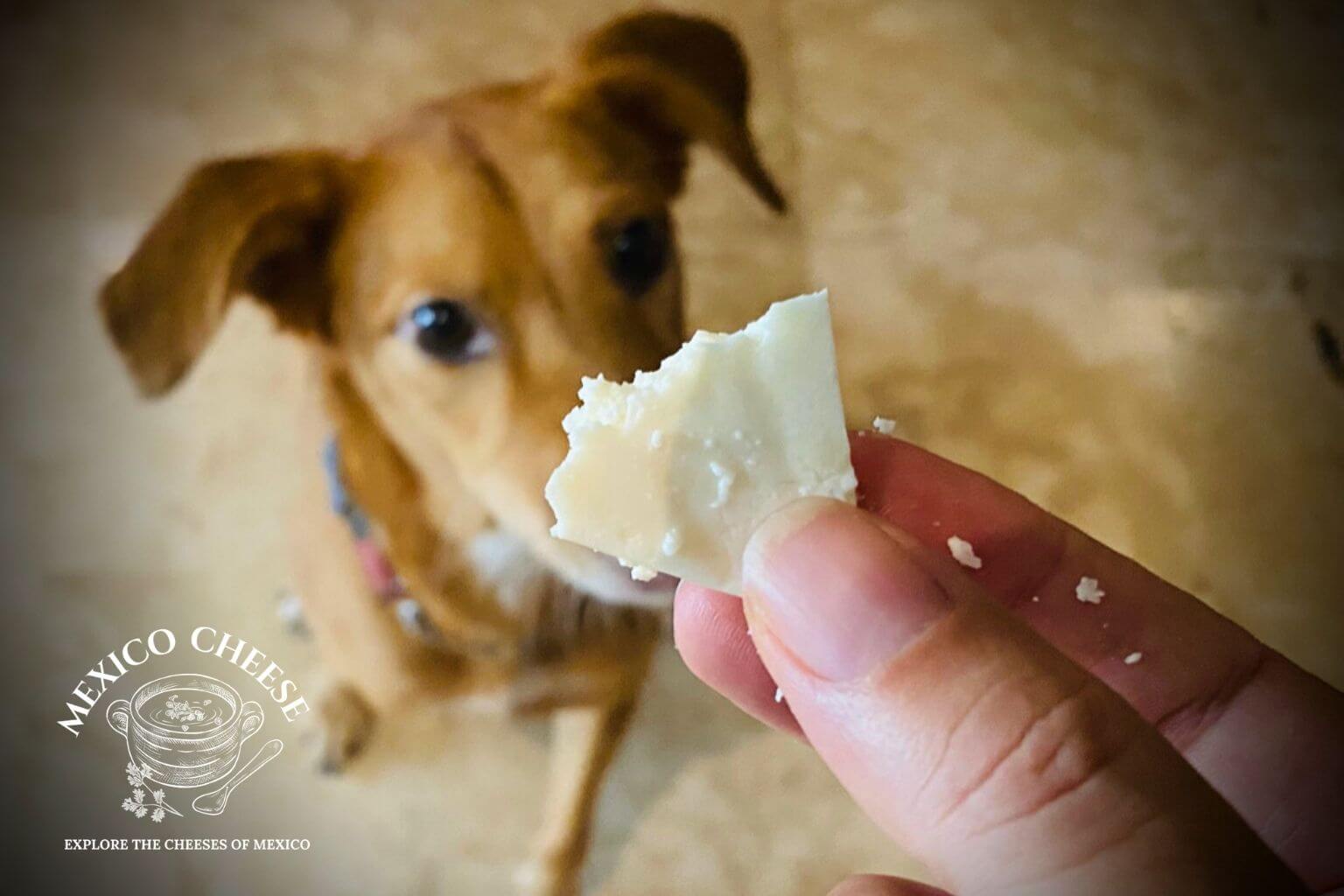Can Dogs Eat Panela Cheese?
Contents
- 1 Can Dogs Eat Panela Cheese?
- 2 What kind of cheese is panela cheese ?
- 3 What is Panela cheese similar to?
- 4 Are there different kinds?
- 5 Is unpasteurised cheese safe for dogs?
- 6 Can dogs eat fresh cheese?
- 7 Can panela cheese upset a dog’s stomach?
- 8 All things in moderation
- 9 The benefits of cheese for dogs
- 10 Cheeses to avoid feeding your dog
- 11 Avoid feeding cheese to your dog that is:
Yes, most dogs can eat Panela cheese in small amounts as a treat. As with all cheese, there are health considerations to be made when feeding dogs, but Panela cheese is relatively low fat compared to some other cheeses.

Panela cheese can be great as a treat for your dog, but you should always keep your friend’s diet in mind. Too much cheese will be detrimental to any dog’s diet. It will introduce too much fat and sodium.
Occasionally Panela cheese is coated with a garlic paste. Garlic is toxic for dogs, so this should never be given to them.
There are some cheeses you should not give to a dog, and some dogs that should not be given cheese.
What kind of cheese is panela cheese ?
Fresh Panela cheese is a smooth, white, springy cheese made from skimmed cows milk. Because it can take high heats without melting, it is often fried or grilled. Cubed it is excellent in salads.

After being aged it becomes crumbly and is fantastic as a topping for guacamole, chili or tacos.
What is Panela cheese similar to?
When fresh it is similar to Paneer or Halloumi.
The aged version can be used a s replacement for feta or even ricotta.
Are there different kinds?
Although it is all the same cheese, there is a very definite distinction between the fresh cheese, and the aged version.
Commercially produced panela tends to use pasteurised milk, but some of the locally made varieties may not. Fresh cheese made from unpasteurised milk has not had enough of a change in ph to kill off any harmful bacteria.
Is unpasteurised cheese safe for dogs?
Generally it makes very little difference to a dog whether the cheese is pasteurised or not. You will still need to think about the amount of cheese you offer, and the general health of your dog.
Can dogs eat fresh cheese?
Unflavoured fresh cheeses are generally low in fats and sodium, so make a good choice of cheese to treat your dog with in small amounts. You may want to check that it is made from pasteurised milk for extra peace of mind.

Can panela cheese upset a dog’s stomach?
Too much of any cheese can give a dog an upset stomach, and Panela is no exception to this despite being relatively low fat and low in sodium.
All things in moderation
Like most things, cheese can be a good addition to a dog’s diet when used in moderation. Most dogs really enjoy a bit of cheese, so it can be an excellent treat, but only a small amount should be used, and it should not be an everyday thing.
The benefits of cheese for dogs
In reality there is very little benefit in feeding your dog cheese from a dietary point of view. However, because a lot of dogs find it so tasty, used in small amounts as a treat it can be very useful for training. It is also often used to wrap medications in to help dogs take it. Panela cheese is very good for both of these cases, and our dogs are particularly good at taking medication hidden in it.
Cheeses to avoid feeding your dog
Blue Cheese
Blue cheeses are made with a fungus which your dog can be very sensitive to. If ingested it may cause diarrhoea, vomiting, high temperature or even seizures. It is best to never feed your dog blue cheese just in case, but if your dog has eaten some and shows any of these signs you should contact your vet as soon as possible.
Flavoured Cheeses
Flavoured cheeses like Boursin usually use either onion, garlic or chives. These are all toxic for dogs and should be avoided at all times.
Avoid feeding cheese to your dog that is:
Overweight
Obesity is a real health issue for dogs, and although Panela cheese is lower in fat than many other cheeses, it still should not be fed to overweight dogs.
Lactose intolerant dogs.
Dogs who are lactose intolerant can be sensitive to even small amounts of lactose. Although cheese is lower in lactose than whole milk, it is still better to avoid it for these dogs.
Dogs with upset stomachs.
Cheese is high in fats and will only aggravate any upset stomach. Its best to avoid cheese even as a treat until this passes.
